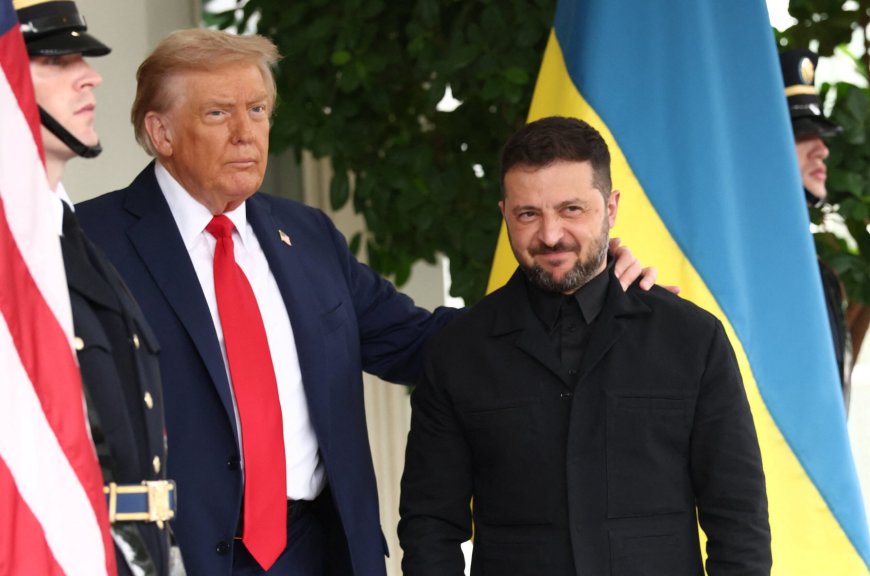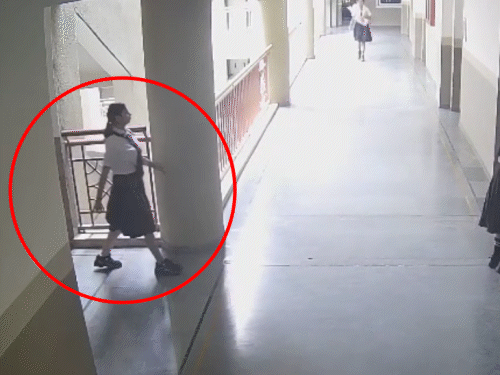White House Briefing Unpacks Trump-Zelenskyy Meeting and Its Implications for U.S.-Russia Policy
The White House press briefing highlights outcomes of Trump’s meeting with Zelenskyy, signaling possible shifts in U.S. foreign policy toward Russia.

The White House press briefing on Monday provided fresh insights into the high-stakes meeting between President Donald Trump and Ukrainian President Volodymyr Zelenskyy, an encounter that could signal potential adjustments in U.S. foreign policy toward Russia. The briefing, delivered by Press Secretary Sarah Matthews, emphasized both leaders’ discussions on security cooperation, military aid, and regional stability in Eastern Europe.
Key Takeaways from the Meeting
At the heart of the Trump-Zelenskyy conversation was the ongoing conflict in Ukraine, which has been marked by Russia’s continued military presence and hybrid warfare tactics in eastern territories. According to Matthews, Trump reaffirmed his commitment to supporting Ukraine’s sovereignty, while simultaneously signaling interest in pursuing a “broader diplomatic framework” with Moscow.
This dual approach, pairing strong backing for Ukraine with a cautious openness toward dialogue with Russia, underscores the administration’s attempt to balance competing strategic interests. While Trump stopped short of announcing any new sanctions or military deployments, officials hinted at “policy recalibrations” that could come in the months ahead.
U.S. Foreign Policy Crossroads
Foreign policy analysts are divided on whether this signals a shift in Washington’s stance. Some view it as an attempt to prevent further escalation between Ukraine and Russia, while others worry it could embolden Moscow if not paired with stronger deterrents.
“The administration appears to be threading a very fine needle,” noted Dr. Karen Lewis, a political scientist specializing in Eastern European security. “On one hand, they want to assure Ukraine of continued U.S. support. On the other, they don’t want to close the door to potential talks with Russia, especially on issues like arms control and cyber stability.”
For historical context, U.S. foreign policy toward Russia has often oscillated between containment and engagement. Analysts say the Trump-Zelenskyy meeting may represent the latest iteration of this balancing act, one that could redefine alliances if handled improperly.
Press Briefing Highlights
During the briefing, Matthews outlined three core themes from the leaders’ discussions:
-
Military Assistance: The U.S. will continue to supply defensive weapons to Ukraine, though no new aid package was announced.
-
Diplomatic Engagement: Trump indicated willingness to engage in multilateral talks involving NATO and European partners.
-
Russia Policy: While reaffirming sanctions already in place, the administration left open the possibility of “constructive dialogue” with the Kremlin.
Notably, reporters pressed the White House on whether Trump had considered easing sanctions on Russia as part of his outreach. Matthews declined to provide specifics but reiterated that “no decisions have been made regarding sanctions policy at this time.”
International Reactions
Kyiv welcomed the outcome, with Zelenskyy’s office releasing a statement praising Trump’s “strong assurances of partnership.” However, European allies reacted more cautiously. Leaders in Berlin and Paris expressed concern that any U.S.-Russia thaw could weaken Western unity on Ukraine.
Meanwhile, Moscow downplayed the significance of the meeting, with Russian officials framing it as evidence that Washington recognizes the need for renewed dialogue.
Domestic Political Debate
The press briefing also sparked debate within the U.S. Congress. Democratic lawmakers accused the administration of sending “mixed signals” at a critical moment in Ukraine’s defense, while Republican allies applauded Trump’s willingness to explore diplomatic solutions.
This divide mirrors broader disagreements in Washington over the best approach to Russia: containment through sanctions and military support, or engagement through diplomacy and negotiations.
Looking Ahead
As the U.S. navigates its next steps, much will depend on how Moscow responds. If Russia interprets the administration’s outreach as weakness, it could escalate tensions in Eastern Europe. Conversely, a carefully managed diplomatic effort might open doors to progress on long-standing issues like arms control, cybersecurity norms, and regional security agreements.
The Trump-Zelenskyy meeting, and the White House’s subsequent framing of it, illustrates the delicate balance between deterrence and diplomacy that defines American foreign policy. For now, the world will be watching whether this signals a true policy shift—or simply a tactical recalibration.
What's Your Reaction?
 Like
0
Like
0
 Dislike
0
Dislike
0
 Love
0
Love
0
 Funny
0
Funny
0
 Angry
0
Angry
0
 Sad
0
Sad
0
 Wow
0
Wow
0







































































